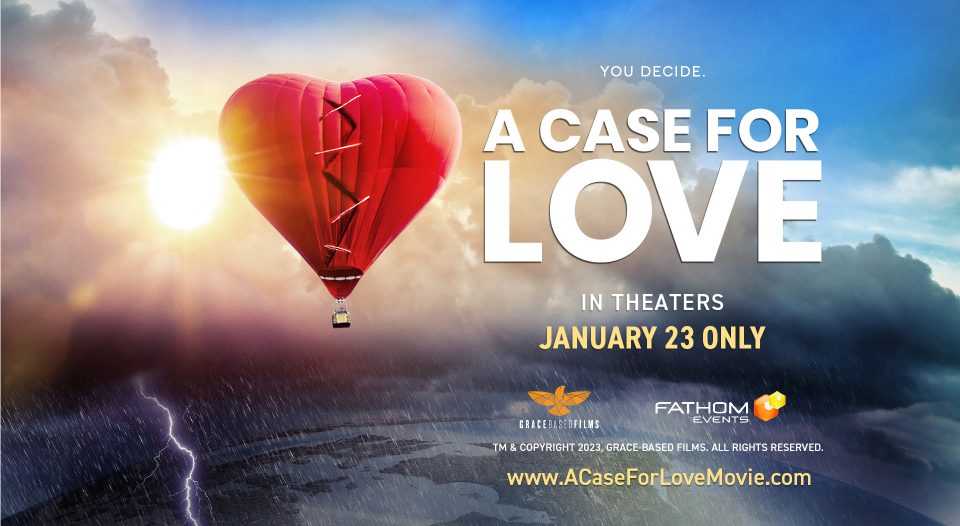Bishop Michael Curry is at a loss for words.
Those who have heard sermons from the presiding bishop of the Episcopal Church, if only from the royal wedding of Prince Harry and Meghan Markle, understand how rare such an occasion is.
What makes Curry pause at the start of the documentary A Case for Love? It’s the question that opens the film. “We see signs all over the place that say, ‘Love wins,’” a voice says. “But doesn’t that feel a little naive or even irresponsible?”
Given that it comes from Brian Ide, director and co-writer with Karen Ide of A Case for Love, we understand the question is rhetorical. In the film, Ide insists on the power and necessity of love, a love that crosses the boundaries of religion, race, sexual orientation and class.
Ide finds answers to his questions in interviews conducted throughout the United States with passers-by, religious leaders of various faiths, and public figures such as Secretary of Transportation Pete Buttigieg and actor Sam Waterson. But the most moving sections come from regular people who respond to the evils of the world.
A woman who endured abuse from her mother and was trafficked for sex after running from home describes the help and stability she received from Becca Stevens, an Episcopal priest and founder of Thistle Farms in Nashville. A couple shares their unlikely journey to becoming foster parents. A veteran and his wife describe the work they do for soldiers with post-traumatic stress disorder.
In the film, Ide insists on the power and necessity of love, a love that crosses the boundaries of religion, race, sexual orientation and class.
Ide and cinematographer Kyle Moe shoot these conversations with warmth, underscoring the human connections between participants. The camera captures the passion and difficulty in each of the interviewees, cutting to insert shots of a woman wringing her hands as she remembers her sense of helplessness or catching a thoughtful smile crossing Curry’s face.
That said, the talking head format proves to be a poor fit for the subject matter. As Curry says in response to a question about divided race relations in the United States, “We’ve just got work to do.” Given the weight and breadth of the problems described in the movie, simple talk about love seems insufficient. Rather, it’s clear that love must motivate people to work.
To be fair, the interviewees in A Case For Love are indeed tireless laborers. Even when listening to theologians such as Rabbi Shoshanah Conover or Muslim peace advocate Mohamed Elsanousi, A Case For Love comes from the perspective of those people who have committed themselves to helping others. However, except in the cases of cooking enthusiast Rosa Uy feeding her family or the Erdmanns, a family who welcomes refugees into their home, playing with children, the movie features far more telling than showing.
A Case For Love addresses this lack in part with beautiful animated segments, in which paper dolls reenact the experiences related by the storytellers. Lead animator Julian Curi presents the figures in the story as faceless representations, which underscores the universal need for love shared by all people, no matter the specifics of their situation. All of the figures have speckles on their skin that recall diseases and scars, reminding viewers of the hurt that we all carry with us.
While these animated sequences are as moving as the stories they depict, the film never spends much time with any one participant. Instead, Ide emphasizes quantity, giving everyone from random people on the street to his more vaunted guests an opportunity to share some thoughts about the power of love to heal the world’s ills. Because of this breadth, not even Curry, who gets a full section of the film devoted to him as well as the movie’s only on-camera interview with Ide, can add much depth to their answers.
But, of course, A Case For Love doesn’t need a great deal of evidence to make its point. The very fact that people from so many different walks of life agree on the importance of love should be enough. What else needs to be said?
A Case for Love will be in theaters on Jan. 23. To find the closest screening and buy tickets, visit its page on the Fathom Events website. You and your congregation are also invited to join the “Month of Unselfish Love Challenge”—30 days of daily acts of selflessness. The film’s discussion guide was developed by Luther Seminary’s Faith+Lead.




